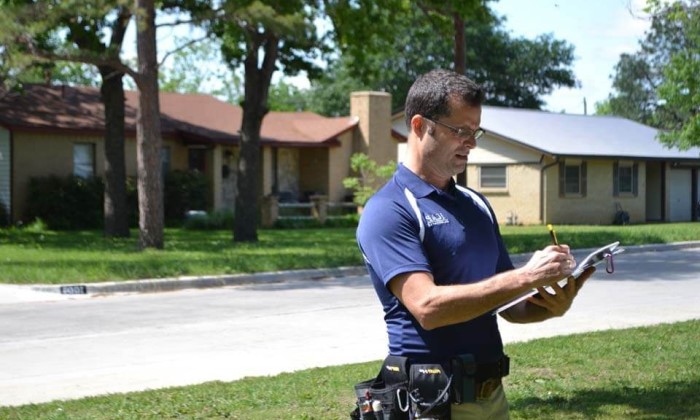Personal Property
Steps to Getting Started As a Property Claims Adjuster

If you’re thinking of becoming a property claims adjuster, here are some steps to getting started: interview the insured, obtain a copy of the policy, obtain a recorded statement from the insured, and prepare a claim file. Once you’ve learned the basics of a claims adjuster’s job, you’ll be ready to tackle the challenges of your future. Fortunately, there are plenty of ways to get started as a claims adjuster.
Interviewing the insured
When interviewing the insured as a property claims adjuster, the most important thing to remember is to be yourself. Your answer to operational questions should give the adjuster an idea of your skills, knowledge, and experience. If you are overly anxious and unprepared, you may say things out of turn or misinterpret the question, which can give the adjuster reasons to reject your claim. Fortunately, there are many tips for presenting yourself in the best light.
Be prepared for the interviewer to ask you a series of questions. The interviewer wants to know what your job duties will be, and how you handle challenges. To answer this question, describe the specific steps you took to resolve the claim, the other drivers who were involved, and any people who were injured. In some cases, you may be asked if anyone witnessed the accident. Doing this is a good way to demonstrate your motivation and enthusiasm.
Obtaining a complete copy of the policy
Before an insurance adjuster investigates a property claim, he or she must obtain a complete copy of the policy. While the policy used to be printed on paper, nowadays the insurer stores data on a private website, which is only accessible to insurance company employees. The website includes a complete copy of the policy, including the declarations page and standard or company-specific forms.
The policy is important for many reasons. First, the adjuster must know what the insured’s coverage limits are, as well as whether any coinsurance or average coverage has been violated. The insurance policy will also require that the insured produce certain documents during the investigation. This documentation binds the claimant to a position, allowing the insurance company to test the validity of the claim.
Obtaining a recorded statement from the insured
When an insurance adjuster contacts you after an accident, it is a good idea to obtain a recorded statement from him or her. Recorded statements are not only helpful for the insurance company, but they can also help you in a lawsuit. Insurance adjusters are not always friendly or polite. They are often very busy, so they may not be able to spend the time necessary to record your responses.
When dealing with an insurance adjuster, you may feel pressured to answer a specific question. For example, the adjuster may ask you if you have any prior injuries or any other activities you’ve engaged in. They might also ask for a recorded statement to better evaluate your case. Before providing a recorded statement to an insurance adjuster, contact an attorney, who can determine whether the statement is required.
Preparing a claim file
When you’re a property claims adjuster, you’ll need to prepare a claim file before you start your investigation. First, you’ll need a copy of the insured’s insurance policy. Previously, this copy was paper, but these days the company keeps all policy data on a private website accessible only to company employees. The website contains the full copy of each policy, along with a declarations page and other standard and company-specific forms.
Once you’ve received the insurance company’s estimate of damage to your property, prepare your claim file. List the damaged areas, including any cracks in the walls or floors. Also, provide pictures and repair estimates for any damage. A detailed claim file helps the insurance adjuster determine what’s covered and what’s not. Keep your insurance adjuster informed of any changes or expenses so he can be as accurate as possible.
Obtaining a copy of the insurance policy
As a property claims adjuster, you need to know the limitations of your insurance policy. First, you need to know what perils the policy covers. You should find out the policy type, whether it’s a standard fire policy, a multiple named peril policy, or an old “all risks” insurance policy. It’s also important to know the policy’s exclusions.
If you think you don’t have insurance, contact the insurance company’s customer service representative. A representative can explain your policy’s requirements. Even if the adjuster denies coverage, you can still pursue legal action. Always review any payout documents carefully before signing them. Contact the insurance company and request an itemized list of the estimate. Make sure you get the full insurance policy if you are unhappy with the estimate or decision of the claims adjuster.
Obtaining a copy of the policy
Property claims adjusters need to know the policy details before they begin investigating a claim. Obtaining a copy of the policy from the insurer will ensure that the adjuster has all the information they need to properly investigate the claim. While this used to be a paper copy, most insurance companies now store their data on a private website accessible only to employees. These websites contain the full copy of every policy, including the declarations page and all standard and company specific forms.
Obtaining a copy of the policy from the insurance company is important for two reasons. First, an insurance adjuster needs to know how much damage was caused by the loss. The insurance policy will require the insured to cooperate with the investigation and produce certain documents. The documentation helps the adjuster test and determine the value of a claim. It also helps the adjuster determine if the policy limits the number of damages.




